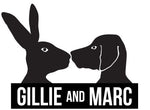If you’ve ever wondered how a maternity ward nurse copes with becoming a mother.
I was only 24 years old when I gave birth to Jessie. Marc and I were ex-pats, living in Singapore, and both of our families were millions of miles away.
Before becoming a mother I had worked for years as a nurse on the maternity ward. This role meant I had helped deliver babies, and taught mothers how to breastfeed and bath their newborns. At the time I felt so confident, as though I was some kind of baby expert. I had this romantic notion about motherhood and dreams of what it would be like. My own mother had always told me it was easy and my friends just seemed so put together. They all made motherhood look like a walk in the park.
From the moment Jessie arrived, she suffered with colic. My newborn baby would scream out in pain, night and day, and there was nothing I could do. Listening to someone else’s baby cry is one thing and I realise now that being a nurse had trained me to be rational and calm around distressed newborns. But when you hear your own baby howl like that, the response is primal and uncontrollable. Each time she screamed out in pain it was as though my heart was being ripped out of my chest. I was failing! I was failing as a mother, something that people had been doing for millennia.
I became so dispirited. This was before the days of blogs and social media and so instead of finding ways to reach out for support and love, I locked myself away, wallowing in my own distress. I turned away neighbours and friends. I’d let the phone ring out even though I knew it was my family calling from overseas. I was becoming a recluse, a shell of a person until suddenly, my fog lifted.
My daughter was three months old when her colic simply vanished. This bawling baby transformed before my eyes. The relief I felt was like being let up for air after months of drowning. Now her pain had gone – I was no longer in pain either.
Jessie was a happy, easygoing toddler and when I gave birth to my second child Ben she was such a good little helper. Now Jessie is 25-years-old and she and Ben are my best friends.
When the topic of motherhood comes up, I always make sure to be honest with Jessie because I wish someone had been truthful with me about how difficult it can be. Jessie deserves to know about my own experiences because I never want her to feel like she is alone and failing.
Having a baby is the most profoundly beautiful and rewarding experience of my life. But it’s also the greatest challenge I’ve ever experienced and when I felt most lost and alone in my life.
We started the Lost Dogs of Hope Project as a way to break stigma around feeling lost because the truth is, feeling lost is a very common, human experience. I wish during that first three months I had spoken up so that someone could offer me some words of hope. When you’ve given up on yourself, hope is the first step to finding yourself again. And that’s why we started the incredible, Lost Dogs of Hope Project.
Watch Mia Freedman talk about the last time she felt lost for the Lost Dogs of Hope project here.
You can also watch the Lost Dogs of Hope videos on Gillie and Marc’s Facebook page.


